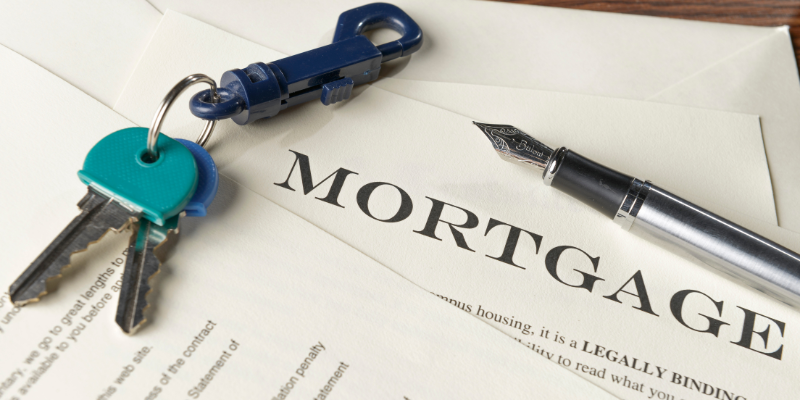
It could be hard to sell a house with a mortgage in Massachusetts for the first time because there are so many variables that can change. If you want to sell your home with confidence, you need to know how the real estate market operates in your state and what the law says about selling a home with a mortgage. This article talks about aspects that all homeowners should consider, like how to determine a fair price, how to make mortgage payments, and how to get your property ready to sell to today’s buyers. The information below is aimed to help you make sensible choices that will protect your money and help you have a smooth, successful sale in the Massachusetts housing market, which is always changing. This is true whether this is your first sale or you’ve sold before.
Key Highlights
- Make sure you know how much your mortgage payments are and establish a fair price for your home so that the sale proceeds smoothly.
- In Massachusetts, you must pay off all of your debts and hire a closing attorney to make sure the title transfer happens well.
- Make changes to your home and organize it so that it looks better to buyers and is more competitive.
- Get people interested in buying by using social media and beautiful photographs.
- Be honest about all of your mortgage information so that you can stay out of legal trouble and win trust.
This is how to sell your house in Massachusetts if you have a mortgage
In Massachusetts, it’s not very common to sell a house while still having a mortgage, but there are a lot of things you need to think about before you put your house up for sale. You should know if you can sell your house even if you still owe money on your loan, how the sale will affect your mortgage, and what you need to do to stay within the law in your state. The next portion talks about the most critical things that vendors need to know. This can help you get ready for problems before they happen and give you more control over the full process, from listing to closing. You’ll be much better equipped to handle the sale, reduce delays to a minimum, and achieve a good result if you know everything there is to know about the process, from what has to be done to pay off the mortgage to what buyers want.
Can you sell a house that still has a mortgage on it?

It’s not too unusual to sell a house that has a loan on it. First, you should call your lender and ask how much you still owe on your mortgage. You can figure out how much of the sale’s money will go toward your loan and how much you can keep after closing if you know exactly how much you owe. This amount normally includes the balance of your principal, interest up to the date you want to close, and any extra fees your lender may charge. You need to completely understand this information so that you can set the right price for your house and avoid any financial surprises later.
In Massachusetts, sellers are required by law to advise buyers about any financial problems with the property, like active mortgages, liens, or other concerns. People who want to buy a house need to know how much it costs. Being honest about this right now will help you build trust and keep you out of trouble with the law in the future. A real estate agent can help you figure out a fair price for your home and make sure that the sale price will pay off your debts. The quantity of the payoff affects both how likely the deal is to go through and how much money the seller will get.
It’s also vital to keep in mind how important it is to give the buyer a clear title. Before the closing can proceed, all unpaid liens must be paid off, according to Massachusetts law. To do this, you need to pay off your present mortgage. This normally happens during closing, when the lawyer works with your lender to make sure the loan is paid off and the lender takes their lien off the property. You may need to work harder with your lender or other people if you sell a house with a mortgage.
You should only hire a closing lawyer who knows what they’re doing. Lawyers handle the closing process in Massachusetts. This includes the legal and financial steps involved in paying off a mortgage and transferring the title. Having a lawyer on your side not only helps you follow the law, but it also gives you peace of mind during what can be a long and complicated process. These professionals can help you sell your house more quickly and fix problems that could otherwise slow down the closing or make negotiations more difficult.
How to Sell Your House Even Though You Still Have a Loan
You can’t sell a house with a mortgage until you’ve looked at your current finances. You’ll have a better sense of how much to ask for your property and how much you could make from the sale when you get your payback statement. This information is highly crucial for establishing your overall plan, which covers everything from how much you want to sell your property for to how you want to handle negotiations.
After you take care of your money, the next thing you need to do is get your Massachusetts home ready to sell. Pricing is very important when there is a lot of competition in a market. To choose a price that will get buyers’ attention and yet pay off your mortgage, look at how the local market is doing right now and how much similar properties in your area have sold for recently.

It’s very crucial to do a good job of marketing. Many people search for houses online, so investing in high-quality photos, videos, or even 3D virtual tours might really make your listing stand out. Putting your home on more than one site, such as social media and regular real estate sites, will help it attract more attention and interest from more people. If you talk about what makes your house different from others in the neighborhood, including upgrades, energy-efficient systems, or being close to popular local facilities, your listing will be more interesting.
When you get an offer, it’s really important to read everything very carefully. Also, think about the price, the terms, the expected closing date, and the financing choices. The offer should also suit your demands for paying off your mortgage and respect the rules for transferring property in Massachusetts. At this phase in the process, people usually talk to each other. You can check items like inspection reports, credits, or modifications here before you close.
After that, the closing attorney will handle the paperwork, make sure your current mortgage is paid off, and confirm that the transaction complies with state law. Many homeowners also wonder, can the seller back out of a contract in Massachusetts?, especially if unexpected issues arise during the process. Clear communication with buyers and professionals can help move things along faster and make the final signing smoother. With the right plan and guidance, selling a house with a mortgage doesn’t have to be difficult—it can be a straightforward way to move on to the next chapter of your life.
Important Money Matters for Sellers
If you want to sell your house in Massachusetts and still pay off your mortgage, you can’t just accept an offer. You need to handle a lot of money issues. Sellers should find out how much they owe on their mortgage and how much it will cost to sell as soon as they can. You need to accomplish these two things right away. If you know all of this financial information, the transaction is more likely to go as planned, there is less danger of surprise fees, and you will be in a better position for a successful deal. This section speaks about the most critical financial aspects you need to know in order to develop a realistic plan and get ready to negotiate and close.
How to Check How Much You Still Owe on Your Home Loan

Finding out how much you owe on your mortgage is one of the most crucial things to do at the beginning of the selling process. First, call your lender and ask for a statement showing how much you owe. This paper displays how much of the loan’s principal is still owed. It also shows the daily interest that will be added up until the closure date, as well as any possible administrative charges. Your mortgage balance changes a lot since interest builds up every day. That’s why it’s important to keep this number in sync with the date you wish to close.
Some lenders could charge you a fee if you pay off your loan early, depending on the terms of the loan. Mortgages don’t always include these charges, but they might add up to a lot of money that you owe. Before you sell your home, it’s a good idea to be sure that these kinds of fees apply. If you find out that your loan involves prepayment penalties, a real estate lawyer or financial advisor can help you figure out how to cope with them or make them less bad.
Another important thing to think about in Massachusetts is how to get out of your mortgage. Your lender must provide you a mortgage discharge after you pay off your mortgage. This is how they formally take their lien off the property. This normally happens right after closing, but there can be problems or delays, so it’s a good idea to double-check that everything is right. At this point, any inaccuracies could make the closing take longer or make it harder for the buyer to get their loan.
If you’re selling a home in Cambridge and need extra guidance, it’s wise to contact a Massachusetts real estate lawyer or financial expert. They can help you understand your payoff statement, identify any errors, and provide crucial insights into how selling your house could impact your taxes. Knowing exactly how much money you’ll have on hand not only helps you set a more accurate listing price but also gives you a stronger position for negotiations, budgeting, and maximizing your sale proceeds. And if you want a simpler option, we buy houses in Cambridge—helping you sell quickly and efficiently without the usual stress.
Figuring out how much it will cost to sell and other costs
People in Massachusetts who are selling their homes should think about more than just how much they need to pay off their mortgage. These expenditures include closing charges, attorney fees, real estate commissions, transfer taxes, and often the costs of repairing up or getting the house ready to sell. You’ll have a better notion of how much money you could make if you know these fees ahead of time.
In Massachusetts, sellers often have to pay for things like the lawyer’s fee, title insurance, and state transfer taxes. People have to pay transfer taxes when they buy something from someone else. You should add these taxes to your estimate because they fluctuate from city to city. Also, sellers need to make sure that any outstanding property taxes and municipal fees are paid before closing, which could affect how much money you make.
Repairs and renovations before a sale could potentially cost a lot. Some properties just need simple repairs, while others may need more work to fulfill buyer expectations or local building and safety codes. These modifications, whether they are simple like painting or landscaping or bigger like replacing things that inspections show need to be corrected, can help you attract more purchasers and a better sale price.
The cost of staging can also be an issue. A lot of people in Massachusetts prefer to stage their residences, either by themselves or with the help of a professional group. This helps the place look finer and brings out the best aspects of the house. This could help your house sell faster and garner you more bids.
It’s also important to consider what could go wrong. Sometimes, inspections bring up discussions about repairs or credits. Buyers may request concessions based on the appraisal or final walk-through. Planning for these extra costs ahead of time ensures you won’t run into financial surprises while deep into the selling process.
Ephesus LLC buys houses for cash in any situation. Call us today! Having professional guidance—whether from a financial advisor or a closing attorney—can help you understand the process better and make sure no major expenses are overlooked. With proper planning, you can set the right price for your home and enjoy a smoother, less stressful selling experience.
FAQs
Can I sell my house in Massachusetts even though I still have a mortgage?
Yes. Find out how much you still owe on your mortgage. This will help you get a fair price for your home.
What do you have to do in Massachusetts to sell a house that still has a loan on it?
Under Massachusetts law, sellers must tell buyers about their mortgages and any liens that are still in existence. The closing lawyer also has to make sure that all the expenses are paid and the official transfer goes smoothly.
What do I need to do to get my Massachusetts house ready to sell?
Look for flaws in the property records, rectify them, and think about staging. These things will make your house more attractive to buyers and help the sale move more easily.
What do you need to do to find out how much you still owe on your mortgage?
Get a payback statement from your lender that displays how much principal you still owe, how much interest you owe each day, and any fees that may apply. Check that the due date is correct.
What kinds of marketing should I use to get people to buy my house in Massachusetts?
Use high-quality images and virtual tours, put it on prominent sites, and market it on social media to get more people to see and buy your house.
Helpful Massachusetts Blog Articles
- How To Sell a House Without A Realtor in Massachusetts
- Selling A Home That Needs Repairs in Massachusetts
- Can You Sell a House with Tenants in Massachusetts
- How To Sell A House in Probate in Massachusetts
- Capital Gains Tax After Selling A House in Massachusetts
- Selling A House To A Family Member in Massachusetts
- Can You Sell Your House With A Quitclaim Deed in Massachusetts
- How Does Selling A House with A Mortgage Work in Massachusetts
- Can the Seller Back Out of a Contract in Massachusetts
- Who Pays the HOA Fees at Closing in Massachusetts
- How to Sell a Condemned House in Massachusetts
- Should I Remodel My Kitchen Before Selling in Massachusetts
- Can I Sell My House Below Market Value in Massachusetts
- Who Pays Taxes When Selling a House in Massachusetts
- How Long Can Sellers Stay in a Home After Closing in Massachusetts?

